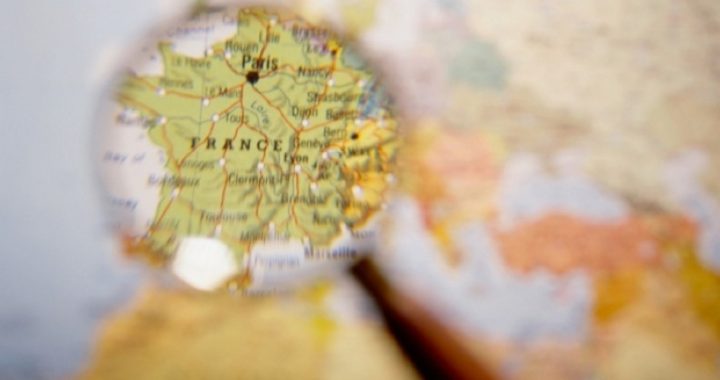
The NSA is guilty of “economic espionage against France,” according to a new report by WikiLeaks. The report details the contents of a cache of leaked documents that show a policy — more than a decade long — of spying on France’s largest and best-performing companies to gain intelligence on the financial health and future of those companies. To make matters even worse, the NSA also conducted digital surveillance on high-ranking government officials, including French Economy Ministers Francois Baroin and Pierre Moscovici, and French presidents Jacques Chirac, Nicolas Sarkozy, and Francois Hollande, as well as “a French Senator, officials within the Treasury and Economic Policy Directorate, the French ambassador to the United States, and officials with direct responsibility for EU trade policy.”
While the NSA’s spying activities related to the targeted French companies seems to be mostly limited to the interception of financial records and contracts, the surveillance of government officials includes the NSA’s stock in trade: the interception of “conversations and communications.”
Since at least 2002, the NSA has been conducting this unscrupulous spying on a nation that is considered an ally of the United States. According to the report from WikiLeaks, the “economic espionage” includes “the interception of all French corporate contracts and negotiations valued at more than $200 million,” and “demonstrate[s] that the US National Security Agency, far from being a rogue organisation, is carrying out an economic espionage policy created by the US Director of National Intelligence.”
WikiLeaks says the United States has conducted this “economic espionage” for the purpose of manipulating markets for financial gain. Julian Assange said, “The United States not only uses the results of this spying itself, but swaps these intercepts with the United Kingdom. Do French citizens deserve to know that their country is being taken to the cleaners by the spies of supposedly allied countries?” In answer to his own question, Assange said, “Mais oui!”
“The intercepts reveal internal French deliberation and policy on the World Trade Organization, the Trans-Pacific Partnership Agreement, the G7 and the G20, the 2013 French budget, the decline of the automotive industry in France, and the involvement of French companies in the Oil for Food programme in Iraq during the 1990s,” according to the WikiLeaks report. This seems to support the claim by WikiLeaks that the purpose of the spying program is financial manipulation.
In the wake of Washington’s own recent unpleasantness in discovering a series of hacks, cyber-attacks, and surveillance against the United States by China and Russia, it is more than a little ironic that the NSA was all the while perpetrating many of these same types of actions against an ally. It also demonstrates a high degree of hypocrisy that President Obama could condemn the digital spying of China and Russia on the United States when the United States is doing the same thing.
One can only imagine the outrage if it were discovered that a foreign power had captured the “conversations and communications” of three U.S. presidents and several other high-ranking U.S. government officials and used internal financial documents from American companies to manipulate financial markets.
Perhaps at least as disturbing as the surveillance and data-gathering is the fact that the NSA appears to have shared the stolen data with other “Five Eyes” nations (Canada, New Zealand, Australia, and the U.K.) as a matter of course. As WikiLeaks reports:
Central within the cache of documents are two long-term spying orders (“collection requirements”) which define the kinds of intelligence the NSA is tasked with collecting in its surveillance operations against France. The documents make clear that the NSA has been tasked with obtaining intelligence on all aspects of the French economy, from government policy, diplomacy, banking and participation in international bodies to infrastructural development, business practices and trade activities. The documents establish that the US economic intelligence operations against France have run for more than a decade and started as early as 2002. Some of the documents are authorised for sharing with the “Five Eyes” partners – the group of Anglophone countries in close intelligence co-operation with the United States: Canada, New Zealand, Australia and France’s fellow member state of the European Union, the United Kingdom, strongly suggesting that the United Kingdom has also benefited from the United States’ economic espionage activities against France.
While the NSA and other three-letter U.S. government agencies typically hide behind the guise of “national security”, this spying is so impertinent as to be a glaring example of Lord Acton’s oft-quoted maxim, “Power tends to corrupt, and absolute power corrupts absolutely.” The NSA — remember, that stands for National Security Agency — will be hard pressed to show how the digital theft of the financial records of a legion of French companies does anything to protect the security of the United States. In fact, it is not only not in the interests of national security to spy on allies, it actually works against those interests. Alienating allies and creating a culture of distrust between nations undermines not only the credibility of the United Sates, but also our ability to work with those nations in times of need.
Only in government could such a breach of trust be tolerated. In the free market, if a department cannot be trusted, it is dissolved. Perhaps it is time for “NSA” to stand for “No Such Agency” with pink slips all around and the legitimate (national security) responsibilities of the agency carried out as part of the constitutional national defense function of the government. Perhaps then the United States could begin to rebuild its reputation and actually focus on national security.




